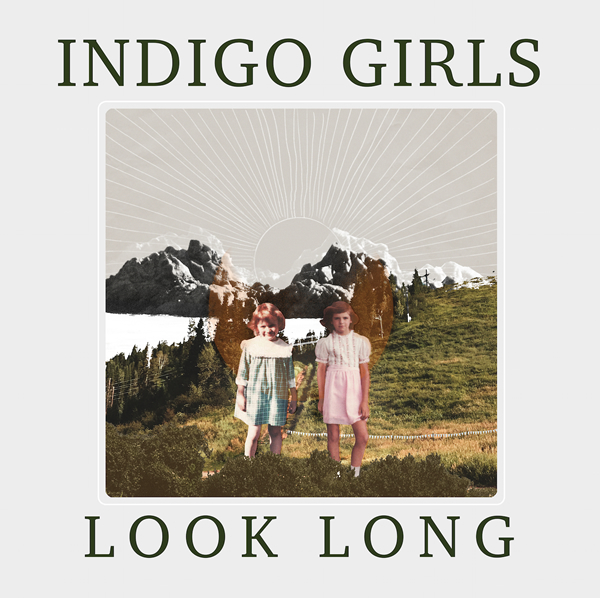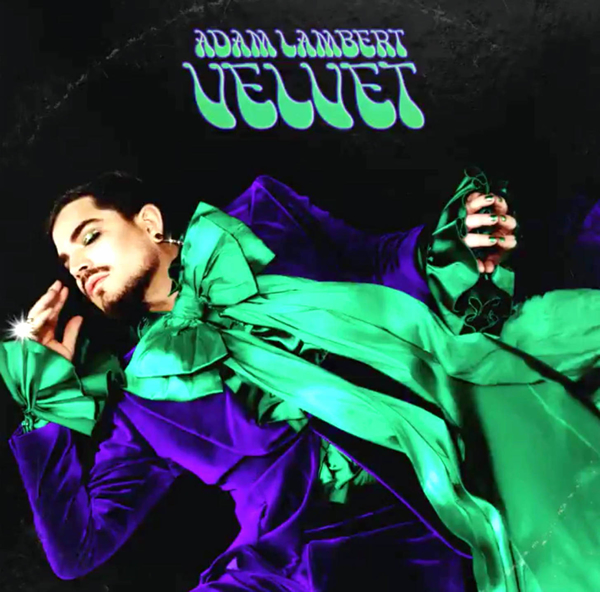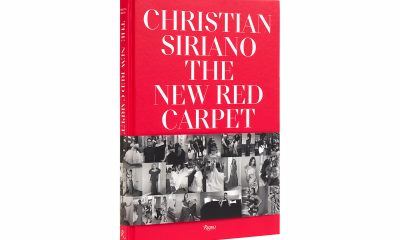Arts & Entertainment
Album roundup: Gaga just so-so on new album ‘Chromatica’
Indigo Girls shine, Adam nails it and Perfume Genius — wtf?


Lady Gaga
Chromatica (**1/2 out of four)
Streamline/Interscope
Although Lady Gaga has never had an out-and-out bomb, she lost her footing a bit with her 2013 album “Artpop.”
Her fans point to its decent chart performance (it debuted at no. 1 and went platinum) and say that’s more perception than reality, but she was starting to experience a law of diminishing returns. The danceclub hits and outrageous fashion upon which she built her brand didn’t resonate the same way five years into her career.
She wisely recognized that and veered hard left making an album with Tony Bennett (of all people; 2014’s “Cheek to Cheek”), recapturing the pop culture zeitgeist with movie debut “A Star is Born” (pleasantly, she actually can act) and go mellow and subdued with her last studio album, 2016’s more singer/songwriter-oriented “Joanne.”
“Chromatica” (out May 29) is her official return to form. It all goes down breezily enough — it’s an easy, catchy listen — yet it’s also not quite the reclaiming of the pop diva throne she clearly intended it to be. It’s good, not great; her fans will love it and it will make a respectable chart dent but creatively she’s painted herself into a corner. While some of her unexpected (at the time) career swerves served her well and were well received, you can’t build a whole career on stunt casting — the meat dress! the Tony Bennett duets! “American Horror Story”! a “normal” album from kooky Gaga! Stuff like that only gets you so far then you’re kinda back where you were five years prior (albeit with an Oscar in tow).
Eventually you have to return to the business of doing what it is you supposedly do and a decade in to her admittedly impressive career, it feels like she’s reaching the bottom of her bag of creative tricks. “Chromatica” suggests to me we’ll look back on her in 50 years more as a Petula Clark (the singer of a decent string of era-defining standards)-type figure rather than a Bette Midler or, heck, even a Kelly Clarkson.
Gaga takes the “Confessions on a Dancefloor” approach here — there’s not a ballad in the batch. Track after track — first single “Stupid Love,” “Plastic Doll,” “Replay” and dozens more — are full of big, luscious, vaguely ’80s-tinged club beats courtesy of producer BloodPop (Justin Bieber, Britney Spears, et. al.), and melodies that take advantage of her impressive set of lungs. The lady can sing — nobody is arguing otherwise.
But it all gets a little samey sounding by the album’s end and a trio of orchestral interludes (dubbed “Chromatica,” “Chromatica II” and “Chromatica III”) sound like they were yanked off some poor man’s Ralph Vaughan Williams imitation attempt and tacked on for contrast and gravitas. They backfire though, sounding like ludicrous non sequiturs.
Lyrically there’s nothing terribly interesting happening but the guest spots — Ariana Grande on second single “Rain on Me,” K-pop girl group Blackpink on “Sour Candy” and Elton John on “Sine From Above” — work slightly better than you’d think. She doubles John’s vocal an octave above to pleasant effect. Glammy, campy (but fun!) final song “Babylon” had me picturing the “Queer as Folk” cast on the dancefloor.

Indigo Girls
Look Long (***1/2)
Rounder Records
It’s easy to take the Indigo Girls for granted. Although it’s been five years since their last studio album (2015’s “One Lost Day”), they keep busy with constant (pre-COVID-19) touring, regular solo outings from both members (Emily Saliers and Amy Ray, both lesbians) and even a live symphony album “Indigo Girls Live with the University of Colorado Symphony Orchestra” (2018).
Their new album “Long Look,” (May 22) however, is a pleasant reminder that not only are they greater vocally than the sum of their parts — their harmonies are truly heavenly — their songwriting is so assured and mature, they’re doing some of their best work now ages after aging (sadly) out of commercial relevance. John Reynolds, who also produced their 1999 album “Come On Now Social,” is back at the reins.
Standout cuts are the groovey, swampy opener “Shit Kickin,’” dance-around-the-campfire-esque “Howl at the Moon,” the plaintive title cut (in which they sound vocally as lovely as Emmylou Harris) and sonic curveball “Favorite Flavor.” Musically overall, this is Americana.
Topics are lyrically varied. “Feel This Way Again” is an urge to teens to savor emotions, album closer “Sorrow and Joy” is a well-crafted examination of ‘80s-era politics and it varies outward from there. Only occasionally (the chorus of “Flavor” or the slightly cloying “Country Radio”) do things feel a tad forced.

Perfume Genius
Set My Heart on Fire Immediately (*1/2)
Matador
Perfume Genius (aka Michael Hadreas) is back with his fifth album (it dropped mid-May) and while it’s more accessible (which isn’t saying much) than his previous efforts — some tracks actually feel like songs — it’s still a tough listen and something you have to be in the mood for.
Atmospherically, there’s a lot here to appreciate — the dreamy, ethereal “Whole Life,” the gauzy, fuzzy rock guitars on “Describe,” the retro organ underpinnings of “One More Try” and so on. One senses here that no instrumental choice or sonic effect was chosen haphazardly; Hadreas (38 and gay) and producer Blake Mills (who returns after 2017’s “No Shape”) took obvious care and mood and texture, to them, is everything (it certainly trumps melody and tempo).
The degree to which you like this album will be proportional to how much avant garde you can stomach. I tried to just close my eyes and savor it on its own terms but I also couldn’t wait for it to be over. The too-precious-by-half, whispery falsetto vocals on “Jason,” the plodding, uncategorizable “Your Body Changes Everything” and the sonic whiplash of “Some Dream,” which sounds like silly nonsense, had me itching to go put on some Jonas Brothers.
In fairness, though, could this be one of those magical albums that just needs time to seep into your pores? An album you endure on the first listen but can’t get enough of three months later? It’s a fair question, but I’m going with no. Texture solely for the sake of texture — and that’s what this feels like — just isn’t enough for me.

Adam Lambert
Velvet (***1/2)
Empire Distribution
An album you might have missed (somehow I did) that dropped in late March is the new Adam Lambert project “Velvet,” the gay “American Idol” runner-up’s fourth.
Lambert here manages to hit that sonic sweet spot where the production sounds both retro yet uber contemporary. There’s a funky, groovy, ’70s/Stax vibe here but also a 2020-kind of top coat on everything that sounds utterly of the moment.
Stylistically it’s still varied. “Superpower” is slutty and all attitude, “Loverboy” is a neo-disco shuffle, “Comin’ in Hot” is slinky and skanky and “Love Don’t” is a gritty rocker. “Ready to Run” has rock swagger and gospel organ accents. First single “Roses,” a duet with Nile Rodgers (of Chic) has lovely hooks and atmosphere to spare. It’s a romantic kiss-off to a lover who offers gestures but little else.
There are only a handful of slow songs, a straightforward piano ballad (“Closer to You”) and closer “Feel Something,” the album’s only pensive, moody moment.
Only occasionally and fleetingly does Lambert fumble — a weak chorus on “New Eyes,” a couple spots where the hooks aren’t quite enough to undergird the swagger and energy, but even then, Lambert’s shimmering whale of a voice — his calling card — is enough to sustain pleasure throughout. This is my summer car album for sure.
Theater
‘Bad Books’ a timely look at censorship in local library
Influencer vs. conservative parent in Round House production

‘Bad Books’
Through May 4
Round House Theatre
4545 East-West Highway
Bethesda, Md.
Tickets start at $43
Roundhousetheatre.org
While a library might seem an unlikely place for a heated contretemps, it’s exactly the spot where adults go when they’re itching to battle out what books minors might be allowed to read.
In Sharyn Rothstein’s “Bad Books,” two women, The Mother (out actor Holly Twyford) and The Librarian (Kate Eastwood Norris), swiftly become mired in a quarrel that comes with some weighty repercussions.
The Mother is a popular conservative influencer on a mission. She’s furious that the local library has overstepped its bounds and she blames The Librarian, a woman who adheres to the “it takes a village” method of child rearing and is dedicated to the young people who approach her reference desk.
There’s some background. It seems The Librarian who dresses young (tight jackets and Doc Martens) and curses a blue streak, forged a friendship with Jeremy, a teenage library regular.
While the details are a bit hazy, it seems the troubled Jeremy confided in The Librarian regarding some personal issues. In return, she suggested a helpful book – Boob Juice.
Unsurprisingly, based solely on its title, the book has thrown The Mother into a pique of outrage. After finding Boob Juice in her son’s bedroom, she made a beeline to the library; and not incidentally, The Mother hasn’t read the recommended work and has no plans to do so.
Set in a suburb with lax gun laws, the story explores facets of division and conciliation. The Mother insists she isn’t so much about banning books as she is keeping some books away from young people until they’ve obtained parental approval.
“Bad Books” is performed in the round. Built on a rotating stage, Meghan Raham’s set is simple, pleasingly serviceable, and easily transforms from the library into a small corporate office, and later the assembly room of a church. Overhead floats a circular glass shelf filled with a cache of banned books. Things like a rolling book cart and a goldfish bowl add some flavor to the different locations.
The Mother wasn’t always a popular conservative warrior with an enthusiastic horde of followers.
Her past includes penning a book that later filled her with guilt and regret. She refers to that early questionable literary accomplishment as her bad book. And while over the years, she has persevered to find and destroy each and every printed copy, she hasn’t entirely succeeded.
Norris plays three women who figure meaningfully into the arc of Twyford’s mother character. In addition to The Librarian, Norris is The Manager, a broadly played piece of comic relief, and The Editor, a warm woman who reveals things about Jeremy that his own mother never knew.
Smartly staged by Ryan Rilette, the production is part of a National New Play Network Rolling World Premiere. While Rothstein’s script offers two strong roles (skillfully performed by celebrated actors Twyford and Norris), its ending feels too neatly resolved.
In the past, Twyford and Norris have successfully joined forces for numerous DMV productions including Studio Theatre’s production of David Auburn’s two-hander “Summer, 1976,” the story of a longtime and unlikely friendship between two women who meet as young mothers during the Bicentennial summer.
Though different, both The Librarian and The Mother share a strong and ultimately hopeful relationship with words.
There’s a quote from E.B. White’s classic “Charlotte’s Web” that pops up a couple of times in the briskly paced 80-minute play. Charlotte, the wise spider, says, “with just the right words you can change the world.”
Books
‘Pronoun Trouble’ reminds us that punctuation matters
‘They’ has been a shape-shifter for more than 700 years

‘Pronoun Trouble’
By John McWhorter
c.2025, Avery
$28/240 pages
Punctuation matters.
It’s tempting to skip a period at the end of a sentence Tempting to overuse exclamation points!!! very tempting to MeSs with capital letters. Dont use apostrophes. Ask a question and ignore the proper punctuation commas or question marks because seriously who cares. So guess what? Someone does, punctuation really matters, and as you’ll see in “Pronoun Trouble” by John McWhorter, so do other parts of our language.

Conversation is an odd thing. It’s spontaneous, it ebbs and flows, and it’s often inferred. Take, for instance, if you talk about him. Chances are, everyone in the conversation knows who him is. Or he. That guy there.
That’s the handy part about pronouns. Says McWhorter, pronouns “function as shorthand” for whomever we’re discussing or referring to. They’re “part of our hardwiring,” they’re found in all languages, and they’ve been around for centuries.
And, yes, pronouns are fluid.
For example, there’s the first-person pronoun, I as in me and there we go again. The singular I solely affects what comes afterward. You say “he-she IS,” and “they-you ARE” but I am. From “Black English,” I has also morphed into the perfectly acceptable Ima, shorthand for “I am going to.” Mind blown.
If you love Shakespeare, you may’ve noticed that he uses both thou and you in his plays. The former was once left to commoners and lower classes, while the latter was for people of high status or less formal situations. From you, we get y’all, yeet, ya, you-uns, and yinz. We also get “you guys,” which may have nothing to do with guys.
We and us are warmer in tone because of the inclusion implied. She is often casually used to imply cars, boats, and – warmly or not – gay men, in certain settings. It “lacks personhood,” and to use it in reference to a human is “barbarity.”
And yes, though it can sometimes be confusing to modern speakers, the singular word “they” has been a “shape-shifter” for more than 700 years.
Your high school English teacher would be proud of you, if you pick up “Pronoun Trouble.” Sadly, though, you might need her again to make sense of big parts of this book: What you’ll find here is a delightful romp through language, but it’s also very erudite.
Author John McWhorter invites readers along to conjugate verbs, and doing so will take you back to ancient literature, on a fascinating journey that’s perfect for word nerds and anyone who loves language. You’ll likely find a bit of controversy here or there on various entries, but you’ll also find humor and pop culture, an explanation for why zie never took off, and assurance that the whole flap over strictly-gendered pronouns is nothing but overblown protestation. Readers who have opinions will like that.
Still, if you just want the pronoun you want, a little between-the-lines looking is necessary here, so beware. “Pronoun Trouble” is perfect for linguists, writers, and those who love to play with words but for most readers, it’s a different kind of book, period.
The Blade may receive commissions from qualifying purchases made via this post.

Friday, April 18
“Center Aging Friday Tea Time” will be at 2 p.m. on Zoom. This is a social hour for older LGBTQ+ adults. Guests are encouraged to bring a beverage of choice. For more details, email [email protected].
Go Gay DC will host “LGBTQ+ Community Social in the City” at 7 p.m. at Hotel Zena. This event is ideal for making new friends, professional networking, idea-sharing, and community building. This event is free and more details are available on Eventbrite.
Trans and Genderqueer Game Night will be at 6 p.m. at the DC Center for the LGBT Community. This will be a relaxing, laid-back evening of games and fun. All are welcome and there’ll be card and board games on hand. Feel free to bring your own games to share. For more details, visit the DC Center’s website.
Saturday, April 19
Go Gay DC will host “LGBTQ+ Community Brunch” at 11 a.m. at Freddie’s Beach Bar & Restaurant. This fun weekly event brings the DMV area LGBTQ+ community, including Allies, together for delicious food and conversation. Attendance is free and more details are available on Eventbrite.
LGBTQ People of Color Support Group will be at 7 p.m. on Zoom. This peer support group is an outlet for LGBTQ People of Color to come together and talk about anything affecting them in a space that strives to be safe and judgement free. There are all sorts of activities like watching movies, poetry events, storytelling, and just hanging out with others. For more information and events for LGBTQ People of Color, visit thedccenter.org/poc or facebook.com/centerpoc.
“Spark Sapphic Social” will be at 8 p.m. at Spark Social House. This weekly sapphic social is an opportunity to mix and mingle with other sapphics in D.C.’s newest LGBTQ bar. This event is free and more details are available on Eventbrite.
“DC Drag Brunch on Rooftop – Penthouse (Formerly at Lima Twist)” will be at 12 p.m. at Baby Shank Rooftop. Hosted by Miss Capital Pride, this is the ultimate drag brunch experience in Washington, D.C., featuring the fiercest queens around. Prepare to be entertained by glamorous drag queens and celebrated celebrity impersonators, including Taylor Swift, Lady Gaga, Beyoncé, Britney Spears, Nicki Minaj, Ariana Grande, Whitney Houston, Cher and many more. Tickets cost $27 and are available on Eventbrite.
Sunday, April 20
Queer Crayon Club will host “Queer Sketch Social” at 3 p.m. at Sinners and Saints. This is a fun event for LGBTQ+ adults to come together and color. Attendance is free and more details are available on Eventbrite.
Monday, April 21
“Center Aging Monday Coffee & Conversation” will be at 10 a.m. on Zoom. This is a social hour for older LGBTQ+ adults. Guests are encouraged to bring a beverage of choice. For more details, email [email protected].
Tuesday, April 22
Genderqueer DC will be at 7 p.m. on Zoom. This support group is for people who identify outside of the gender binary. Whether you’re bigender, agender, genderfluid, or just know that you’re not 100% cis – this is your group. For more details, visit www.genderqueerdc.org or Facebook.
Coming Out Discussion Group will be at 7 p.m. on Zoom. This is a peer-facilitated discussion group and a safe space to share experiences about coming out and discuss topics as it relates to doing so. For more details, visit the group’s Facebook.
Wednesday, April 23
Job Club will be at 6 p.m. on Zoom. This is a weekly job support program to help job entrants and seekers, including the long-term unemployed, improve self-confidence, motivation, resilience and productivity for effective job searches and networking — allowing participants to move away from being merely “applicants” toward being “candidates.” For more information, email [email protected] or visit thedccenter.org/careers.
Asexual and Aromantic Discussion Group will be at 7 p.m. on Zoom. This is a space where people who are questioning this aspect of their identity or those who identify as asexual and/or aromantic can come together, share stories and experiences, and discuss various topics. For more details, email [email protected].
Thursday, April 24
Virtual Yoga with Sarah M. will be at 7 p.m. on Zoom. This is a free weekly class focusing on yoga, breath work, and meditation. For more details, visit the DC Center for the LGBT Community’s website.
DC Anti-Violence Project Open Meeting will be at 7 p.m. on Zoom. This meeting is open to anyone interested in learning more and getting involved in lessening violence both within and directed towards the LGBT communities. For more information, visit Facebook or Twitter.
-

 State Department5 days ago
State Department5 days agoHIV/AIDS activists protest at State Department, demand full PEPFAR funding restoration
-

 Brazil5 days ago
Brazil5 days agoUS lists transgender Brazilian congresswoman’s gender as ‘male’ on visa
-

 District of Columbia5 days ago
District of Columbia5 days agoCapital Pride wins $900,000 D.C. grant to support WorldPride
-

 Obituary4 days ago
Obituary4 days agoLocal attorney, LGBTQ rights advocate Dale Sanders dies at 75












